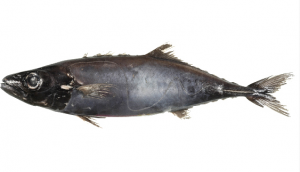Escolar (Lepidocybium flavobrunneum) and oilfish (Ruvettus pretiosus) have been responsible for a number of food poisoning outbreaks involving a type of oily diarrhoea, called keriorrhoea. For example, investigation of some Australian outbreaks of oily diarrhoea suggest between 45 and 67 per cent of people may become ill after eating these fish species. There is probably a significant under-reporting of illness associated with the consumption of these fish as the symptoms can be mild and short-lived.The oily diarrhoea is caused by indigestible oil contained in these fish, which accumulates in the rectum before being expelled. Symptoms range from an oily orange or yellow discharge, to severe diarrhoea with nausea and vomiting. Other symptoms may include stomach cramps, loose bowel movements and headache. The symptoms can occur without warning, usually within 2 ½ hours of consumption, but range from 1 to 90 hours later. Unlike other forms of diarrhoea, the oily diarrhoea caused by these fish does not cause significant loss of body fluid and is not life-threatening. Symptoms may last for one or two days.
If you are pregnant, have a bowel problem or malabsorption, you are advised not to consume these fish. If you are eating these fish for the first time, consume only a small portion. If you experience gastrointestinal symptoms after eating this fish, do not consume this fish in future and seek medical advice if symptoms persist. See more about Natural toxins in food

